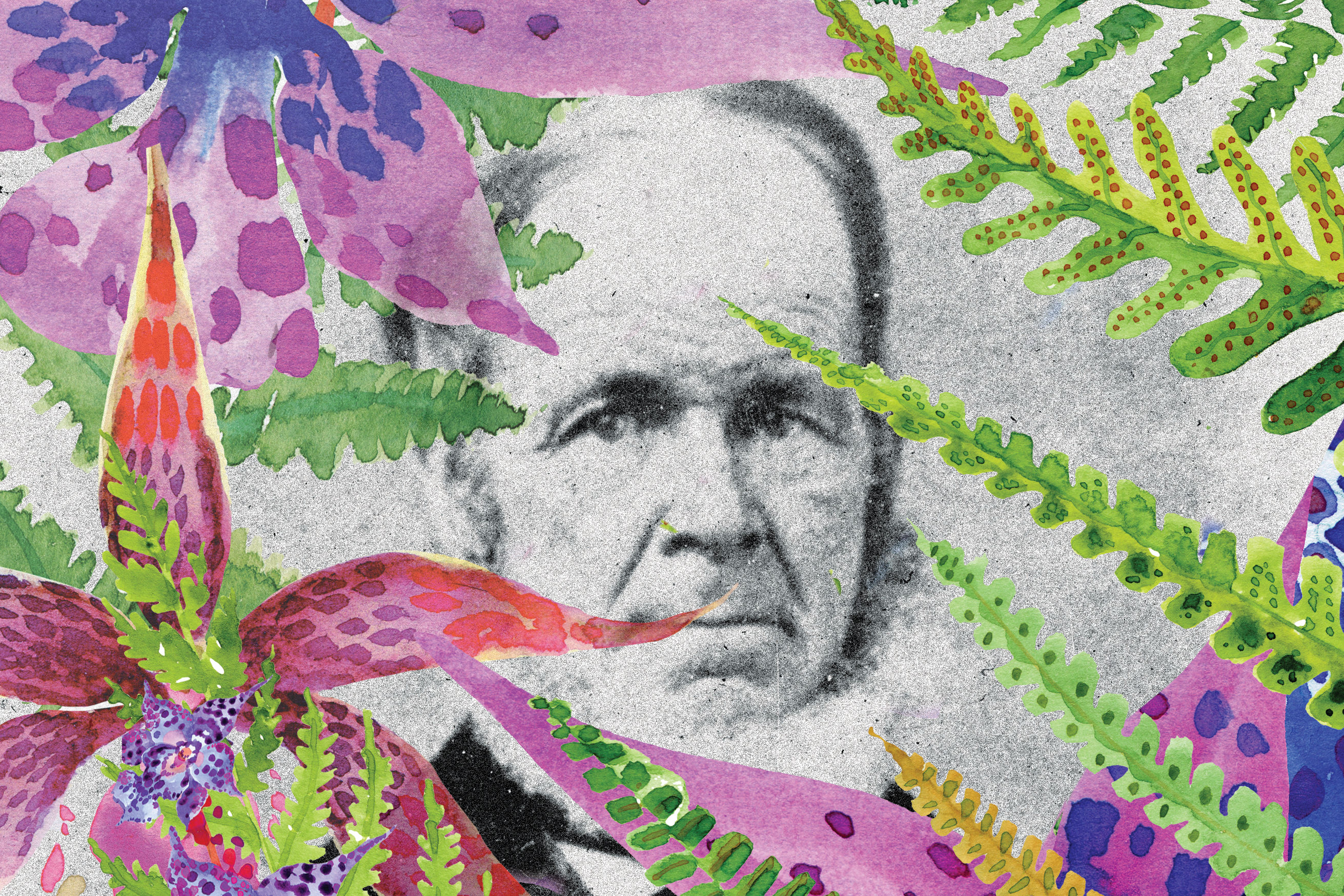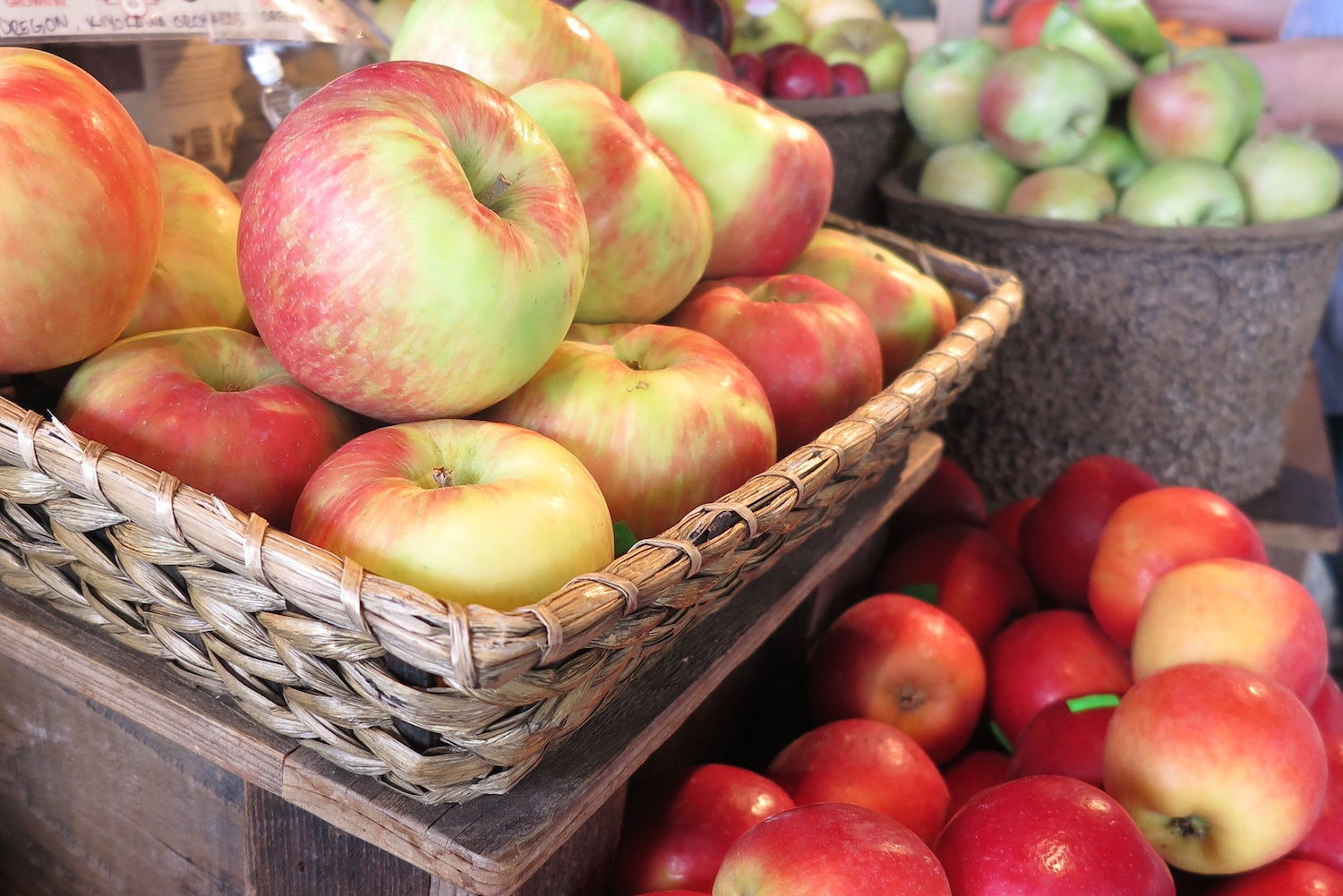The Curious Case of the Hidden Rose
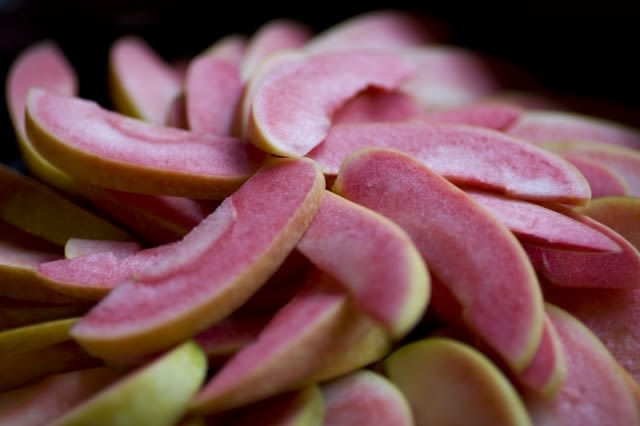
Mount Hood Organic Farm, just off Highway 35 near Parkdale, has been growing Mountain Rose apples since 1993—available at their fruit stand from October to Thanksgiving.
Image: Brady Jacobson
Some say it tastes like cotton candy, and others say fruit punch. Either way, the Pacific Northwest's Hidden Rose apple—aka Mountain Rose, aka Airlie Red Flesh—has a sweet flavor to match an origin story steeped in mystery. Or maybe not if you ask Eric Schwartz, owner of Thomas Paine Farms in Kings Valley. Says Schwartz: “There’s no controversy, just people who try to steal it.”
Can the original fruit really be stolen, trademarked, and marred by aliases? For this apple, it depends on who you ask. To unravel the convoluted past of the Hidden Rose, you need to go back 50 years to Airlie, Oregon—a hamlet just north of Corvallis, where cowboy Lucky Newell bought 80 acres in 1959.
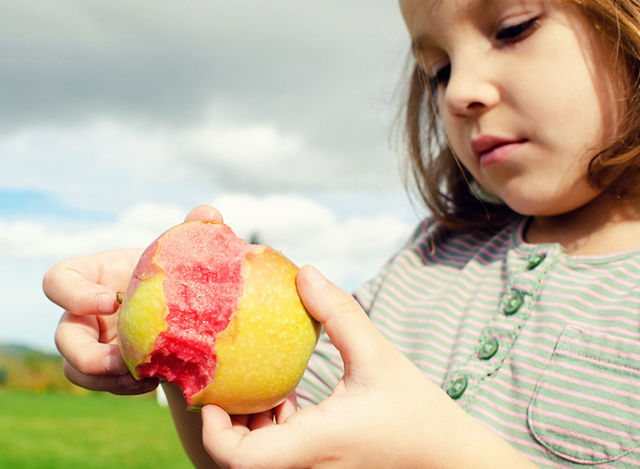
Mount Hood Organic Farm is one of a handful of growers who produce the Mountain Rose in the Hood River Fruit Loop.
Image: Brady Jacobson
According to Lucky’s daughter Sandy Revell, the young apple tree's discovery—by her father near a well on the property—was a happy accident. Says Revell: “We were all up riding horses and Dad reached up and grabbed an apple, took a bite, and it was red inside. I remember him saying, ‘It’s just as red as your lips, honey,’ and he looked at Mom.” Lucky Newell—now 88 years old—didn’t take the rosy fruit to market, but he did sell his farm in 1966, leaving the unique apple sapling behind.
Fast-forward 20 years, to the 1980s: It’s autumn and Louis Kimzey, a former field manager at Thomas Paine Farms, is strolling through the Newells’ old orchard. He plucks an apple from the limb of a mature tree and takes a bite to find a surprise: the same bright flesh that had made Lucky wax poetic two decades earlier. At first Kimzey thought he had come across a Pink Pearl (that’s another apple with unusually ruddy flesh), but soon he realized this was a different variety altogether. In his nearby nursery, Kimzey began grafting the new apple, dubbing it Hidden Rose, and eventually sharing it with Eric Schwartz (among others). In 1994, Schwartz planted it in his orchard.
“I took everything from that one tree and planted it out, 25 to 30 years ago—that’s where it all came from,” says Schwartz, admitting that at first, he preferred the apple's color to its taste. “I’m not going to give the trade secrets to you, but we developed methods to improve the flavor.”
In 2001, Schwartz trademarked the Hidden Rose name, hoping to profit from years spent marketing and developing the fruit. “It was not an easy apple. I couldn’t give it away at first, nobody wanted it. But then people started recognizing the uniqueness of it,” explains Schwartz. A few other growers started growing the Hidden Rose, and when they did, Schwartz came knocking about licensing agreements. “Everyone wants to claim it, no one did any work on it,” says Schwartz, with an air of The Little Red Hen.
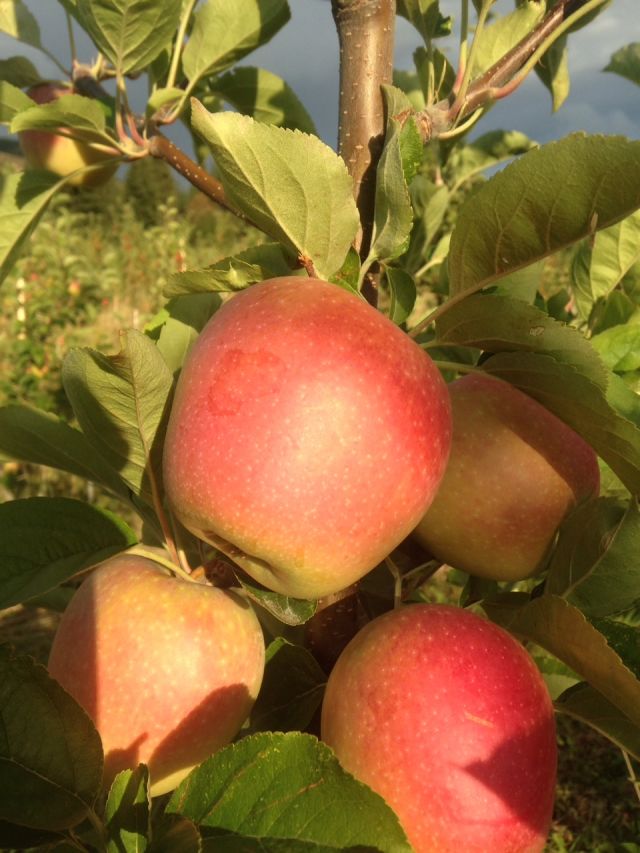
Mount Hood Organic farm is both organic and biodynamic.
Image: Brady Jacobson
Randy Kiyokawa, of Parkdale’s Kiyokawa Family Orchards, was one of those early adopters. In 2001, the same year Schwartz trademarked the Hidden Rose name, Kiyokawa bought ten saplings from a nursery and planted them in his Parkdale orchard. The trees now number two thousand. Other growers on the Hood River “Fruit Loop” also sell the apple, including Mount Hood Organic Farm, which first planted its trees way back in 1993. An important distinction? The red-fleshed product at these farm stands is sold under the name Mountain Rose.
“At first [the apple] was called the Airlie Red Flesh,” says Kiyokawa. “Then it went to Hidden Rose. Then they put a patent on it and we couldn’t use it unless we paid them, so me and this other girl up in Parkdale, we just called it Mountain Rose.”
So which moniker came first—Hidden Rose or Mountain Rose? Is the sapling variety purchased decades ago by Kiyokawa and his fellow farmers different from the one grafted by Kinzey and later claimed by Schwartz? For Kiyokawa it’s clear: “It’s the same apple, just different names.”
If you ask Sandy Revell, all three names are wrong. Rather, she thinks the fruit should be named after the original owners of the Airlie farm where it was first encountered. “If you want to get real picky about the whole damn thing, the people that owned that place were called Storey, so technically it probably should be the Storey Rose,” she says. Storey Rose? It does have a nice ring to it.
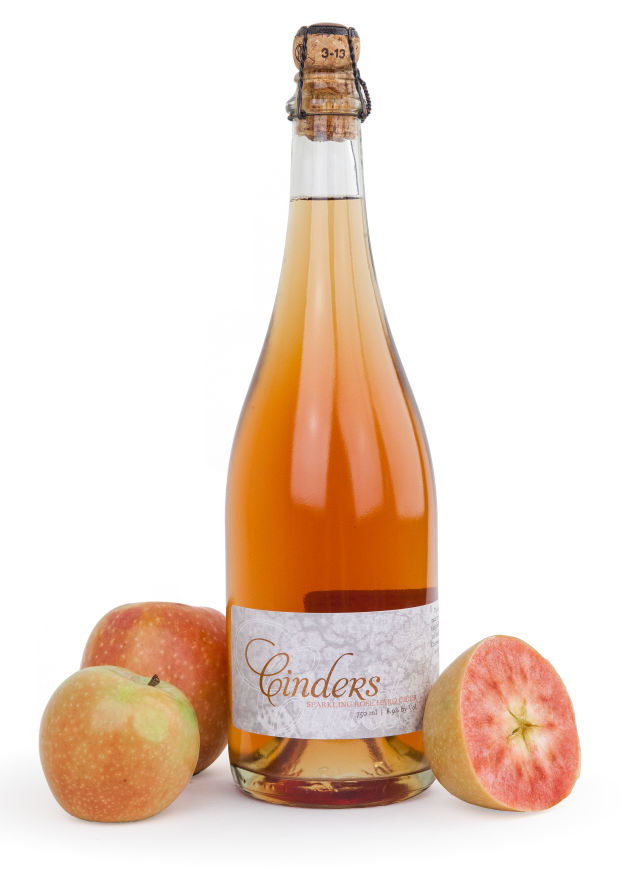
Image: Alpenfire Cider
Want a slice of this mystery? If you'd like a trademarked Hidden Rose, you’ll have to go through the distributor Dragonberry. And at $10–12 a pound, Hidden Rose apples are not cheap. Kiyokawa’s Mountain Rose apples are considerably cheaper: $2 a pound at the Parkdale fruit stand, or $3–4 a pound at Portland metro farmers markets. Or, if you prefer your apples in liquid form, Washington's Alpinefire Cider makes Glow ($23.99), a Hidden Rose hard cider as pink as rosé wine but with a crisp, tropical fruit flavor.
Airlie Red Flesh, Hidden Rose, and Mountain Rose: maybe the truest test is your own tasting. And to the winner—pride of place in a Thanksgiving pie.


